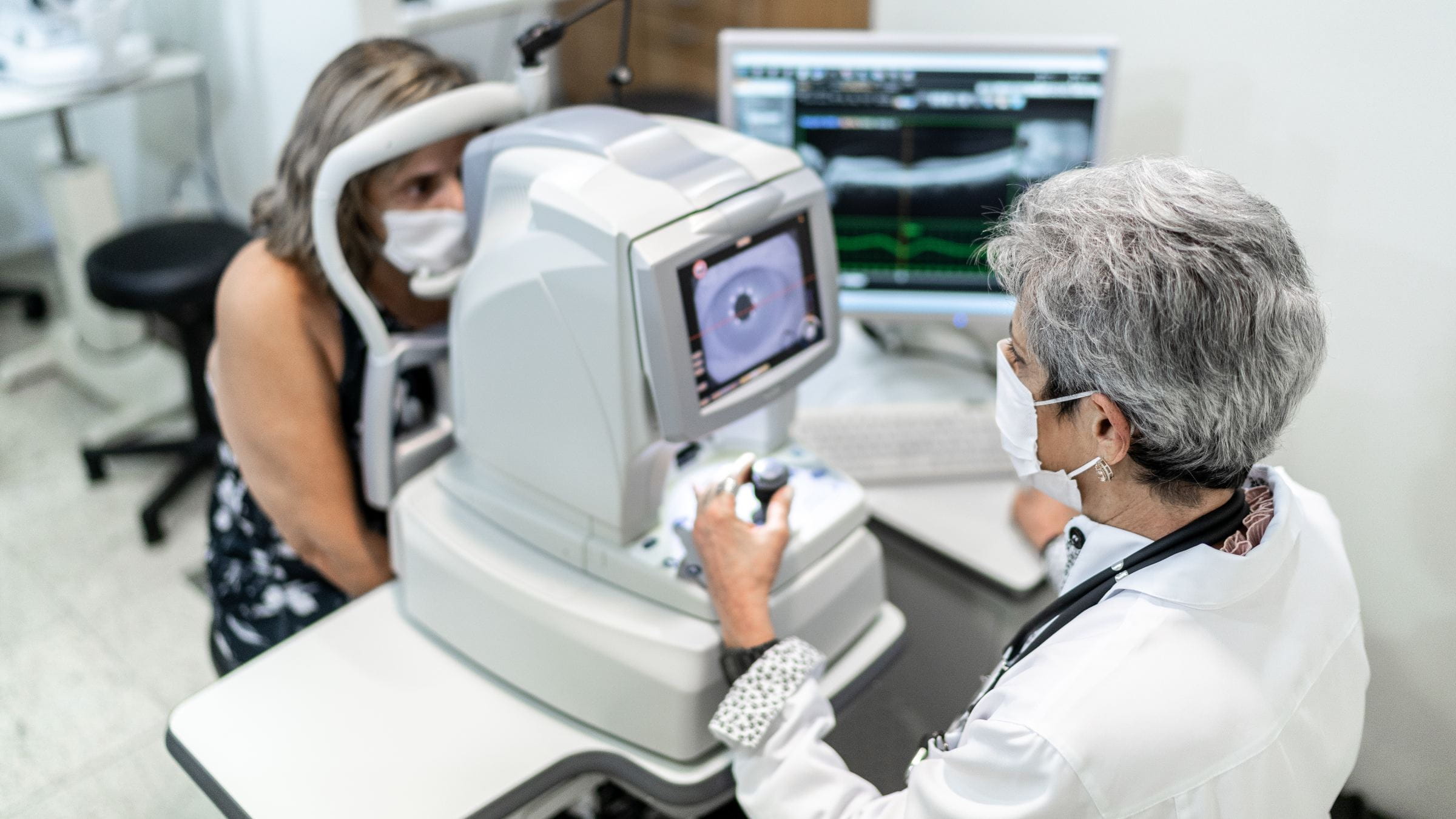
The macula is responsible for detailed and central vision. Macular degeneration is a major cause of vision loss in individuals over age 60. In macular degeneration, drusen, or cellular debris, develops in the macula and leads to vision loss. In the early stages of macular degeneration, the vision loss tends to be mild. Individuals may report mild blurred vision or bending of straight lines. As the disease progresses, vision loss worsens. Rarely will macular degeneration lead to complete blindness.
There are two classifications of macular degeneration: dry and wet. Dry macular degeneration is the milder form of macular degeneration, while wet is more severe. In dry macular degeneration, cellular debris and retinal thinning are seen, while in wet macular degeneration, abnormal blood vessels form and leak, resulting in retinal bleeding.
There are several risk factors in the development of macular degeneration, including age, ethnicity, genetics and lifestyle. Macular degeneration is typically seen in individuals over age 60 and rarely seen in individuals under 50. Macular degeneration is more commonly diagnosed in Caucasian individuals and diagnosed the least in African Americans. Individuals with a positive family history of macular degeneration are at a higher risk for developing the condition, compared to those without a positive family history.
Lifestyle influences that increase the risk for macular degeneration include:
- Increased body mass index
- High intake of saturated fats, trans fats and omega-6 fats
- Uncontrolled cardiovascular disease
- Smoking
Treatment of dry macular degeneration includes vitamin supplementation and lifestyle changes.
Lifestyle changes that you can make to decrease the risk for developing macular degeneration include:
- Maintain a healthy weight
- Exercise regularly
- Eat a diet rich in fruits, vegetables and omega-3 fatty acids
- Stop smoking
Treatment for wet macular degeneration includes a referral to an ophthalmologist for surgical intervention.
If you’re diagnosed with macular degeneration, you’ll be monitored closely by an optometrist or ophthalmologist with dilated eye examinations. Any vision changes due to dry macular degeneration are treated with prescriptive lenses, while vision changes due to wet macular degeneration are treated with specialty low-vision devices, such as low-vision magnifiers.

Great vision starts here
Ohio State's optometry clinics provide world-class eye care for your entire family.
Schedule an appointment




